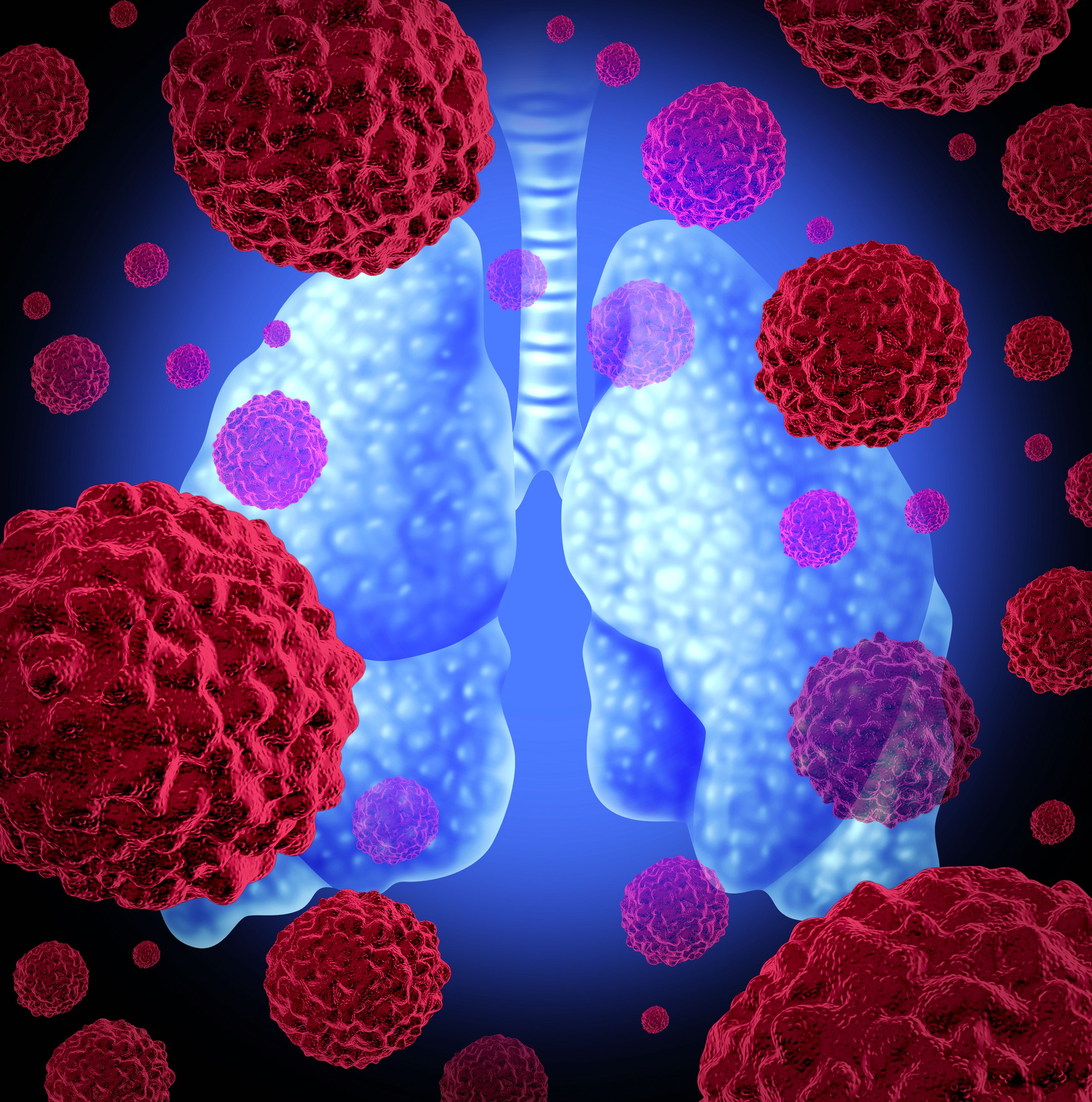First-Line Socazolimab Shows Survival Benefits in Extensive-Stage SCLC
Treatment with socazolimab plus carboplatin and etoposide appears safe in patients with small cell lung cancer, according to preliminary phase 1 study findings.
The anti–PD-L1 monoclonal antibody socazolimab appeared to prolong survival when combined with carboplatin and etoposide in the first line among patients with extensive-stage small cell lung cancer (ES-SCLC), according to recently published findings from a phase 1b clinical trial (NCT04346914).
"Although the sample size was limited, this study preliminarily suggests that socazolimab combined with chemotherapy may have a survival benefit in the first-line treatment of ES-SCLC,” according to the study authors.

In a study population of 20 patients, median progression-free survival (PFS) was 5.65 months (95% CI, 4.14-6.54) with a median duration of response (DOR) of 4.29 months (95% CI, 2.76-5.85). Median overall survival (OS) was 14.88 months (95% CI, 10.09-not evaluable [NE]). The objective response rate (ORR) was 70.0% (95% CI, 45.72%-88.11%), comprising 14 partial responses; moreover, 2 patients remained on treatment with ongoing responses.
“Although the sample size was limited, this study preliminarily suggests that socazolimab combined with chemotherapy may have a survival benefit in the first-line treatment of ES-SCLC,” the investigators wrote.
Investigators of the open-label, single-arm studyenrolled patients between April 15, 2020 and January 18, 2021; the data cutoff date for these findings was December 30, 2021. Most patients (80%) had stage IV disease. The most common sites of metastasis in the enrolled population were the nonregional lymph nodes (75%), pleural or pericardial effusion (30%), and the liver (20%). All patients had an ECOG performance status of 1.
Most of the enrolled patients were male (80%). The mean patient age was 63 years (range, 48-74).
During the trial, patients received intravenous socazolimab at a dose of 5 mg/kg once in each 21-day treatment cycle for a maximum of 2 years. They also received a chemotherapy regimen consisting of carboplatin at an area under the curve dose of 5 once every 21 day-cycle along with continuous etoposide at a dose of 100 mg/m2 on days 1, 2, and 3. Patients received a mean of 8.8 treatment cycles (range, 1-33).
The primary end point of the study was safety. Secondary end points included investigator-assessed ORR, PFS, OS, and DOR.
A subgroup analysis divided the population according to PD-L1 expression. Investigators categorized patients’ disease as strong positive when more than 50% of tumor cells expressed PD-L1, weak positive with an expression between 1% and 50%, and negative with an expression of less than 1%.
When classified in this manner, patients with strong-positive and weak-positive disease had a median OS of 16.6 months (95% CI, 4.14-NE) and 13.1 months (95% CI, 7.39-14.88), respectively. The corresponding median PFS values were 5.72 months (95% CI, 1.77-NE) and 5.65 months (95% CI, 1.35-6.93).
“Owing to the small sample size, we cannot determine the correlation between PD-L1 expression with OS or PFS…. Nevertheless, strong-positive patients seem to have a longer survival than weakly-positive patients,” the study authors stated.
All patients experienced treatment-related adverse effects (TRAEs), the most common of which were anemia (100%), decreased neutrophil count (95%), decreased platelet count (95%), decreased white blood cell count (95%), hypoalbuminemia (35%), infusion-related reactions (25%), increased alanine aminotransferase (20%), increased blood bilirubin (20%), and hyperuricemia (20%).
The most common grade 3 or higher TRAEs were decreased neutrophil count (90%), decreased white blood cell count (65%), decreased platelet count (50%), and anemia (30%); investigators reported that nearly all of these occurred during combination therapy.
Investigators will further test the efficacy of socazolimab in an ongoing phase 3 study (NCT04878016), which they expect will verify these phase 1 findings.
Reference
Lu S, Chen Z, Cui J, et al. Efficacy and safety of anti-programmed death-ligand 1 monoclonal antibody socazolimab with carboplatin and etoposide for extensive-stage SCLC: results from the phase 1b clinical trial. JTO Clin Res Rep. 2023;4(4):100478. doi:10.1016/j.jtocrr.2023.100478